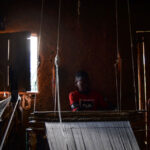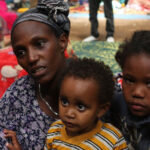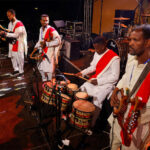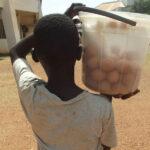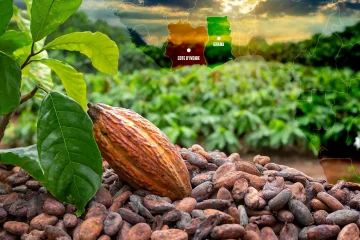FORMER child-labourer Teklu Haimelo, 41, is on a mission to help Ethiopian children on the outskirts of Addis Ababa who weave traditional clothes get an education. This is Teklu’s story as told to Ethiopia correspondent EMELINE WUILBERCQ
When I was six, I had to go to my village to help my grandparents take care of their cattle. There was no education and children were treated by their relatives as workers.
It was hell in the village. Life was very hard. I did not have proper clothes. There was no water to wash our hands before eating and no basic infrastructure. It is still the case nowadays.
I was so tired of working there that I decided to leave. Working in Addis Ababa was the lesser of two evils.
I started working as a weaver for my father with six other teenagers.
We used to wake up at five in the morning and work until midnight. We were only allowed to take breaks to relieve ourselves.
We were not able to go to school. We were served food depending on our work. I was not paid.
If we were not working properly, we would be punished. Our hands and legs would be attached to our weaving equipment. The beatings were very hard.
I spent four years there. But then I decided to flee.
I became a street child at the age of 16. I tried to look for odd jobs and survived on leftover food.
I found a job at another weaver’s house. My earnings were not enough so I had to collect firewood.
If we were ill, we had to pay for our own treatment. And if we did not have money, they used to throw us out. I remember that people died because of the hard working conditions.
I worked on and off for many years, living on the streets when I could not find a job.
I was so desperate that I wanted to kill myself but an athlete who was a complete stranger to me crossed my path and saved me – he offered me lunch and reasoned with me.
I then started renting a small room with friends and worked again as a weaver after buying cheap equipment.

I was able to go to a night school when I was 21.
I had started the first grade at 16 but dropped out soon after because I was ashamed of being overage and some people used to laugh at me.
I finished grade 8 at 27 and I am proud now to have been able to open my own photo studio.
All the young people in this area are weavers. They will not tell you if they are mistreated. But they are all depressed. Many of them do the job because they have to eat and survive.
I strongly believe that the lack of education will have a long-lasting impact on the children’s lives.
When I meet them, I ask them their age and grade. I talk about my life experience. I tell them that I decided to learn at a very late age.
While advising them to get an education, I feed them if they are hungry and I will give them clothes if have some. I try to be an example of what a member of the Gamo community can do.
They respect me because they know that I have been a homeless vagabond. I want them to witness that my life is now better than the one they are living as weavers.
But the community does not understand the importance of education. Parents do not send their kids to school because they just want them to become weavers and support the family.
If I die, my kids will become weavers. It is all about lacking alternatives.
My goal now is to form an association and force employers to send their child workers – who are sometimes their own kids – to school.


